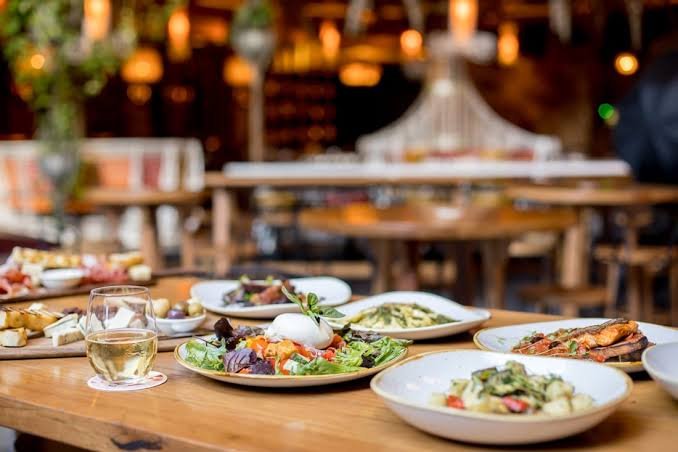Inside BENEO’s new pulse plant: pioneering sustainable protein from faba beans
India has been at the front in recent years with its efforts to streamline food safety regulations to achieve food safety and hygiene in the country
Unsafe food practices in restaurants have had a huge impact on India as much as $15 billion which is supposedly half the amount ($28 billion) incurred last year. This report is generated by World Bank giving us a reality check. The reasons for the fall of costs incurred in the current year is because of the constant monitoring and new standards introduced by FSSAI.
It is a matter of pride that the country has eventually become conscious of food safety which has relatively brought down the FBDs and costs. But, the economy still suffers with current percentage of FBDs estimated in the country. The potential impact of food safety outbreaks on an FBO can be devastating. It can bring unimaginable economic losses to restaurants, small eateries, FBOs and dhabas.
India has been at the front in recent years with its efforts to streamline food safety regulations to achieve food safety and hygiene in the country. According to reports, better health and commercial outcomes are possible with the contribution of public agencies, businesses, and consumers in food safety.
The Indian restaurant industry is worth Rs. 75,000 crores and is growing at an annual rate of 7%. The industry is highly fragmented with 1.5 million eating outlets of which a little more than 3,000 outlets from the organized segment. However the organized segment is rapidly growing at an annual rate of 16%. Quick service segment is the clear winner in the eating out market with a growth rate of 21%
Food Safety in restaurants – Restaurants, being one of the major providers of food should be well-equipped with all the necessary formalities and requirements. Good Hygiene Practices and Personnel Hygiene followed by Food Handlers and staff to reduce foodborne diseases. With the advent of delivery kitchens, QSR market and food online portals, food safety is a need of the hour as it has a wider reach.
Food safety is used as a scientific discipline describing handle, preparation, and storage of food in ways that prevent foodborne illness. The occurrence of two or more cases of a similar illness resulting from the ingestion of a common food is known as a foodborne disease outbreak. This includes a number of routines that should be followed to avoid potential health hazards.
Role of FSSAI: Every restaurant or caterer, irrespective of its size, should be registered under FSSAI and should obtain license. According to FSSAI, the restaurants should keep a check on prevention of food impurities, sorting of raw materials, cleaning & disinfection, sanitization practices, personal hygiene, pest control, and maintenance checks. As a restaurant owner one should always contribute in reduction of spread of diseases and maintain good staff hygiene whilst abiding all the laws.
FSSAI Initiatives: The contribution of FSSAI in bringing down the adversities have been huge because of the onboarding of several food regulations. With the strict actions taken against restaurants, FBOs, and roadside eateries it has been possible to achieve food safety in every corner of the country. FSSAI with its nationwide initiatives such as the ‘FSSAI Food Hygiene Rating’ scheme, ‘World Food Safety Day’, ‘Eat Right India’ movement and ‘Swastha Bharat Yatra’ were influential in battling the grave issues.
Food Hygiene Rating – Over the years, it has become difficult for the consumers to choose restaurants wisely by considering all the factors. These factors include cleanliness, hygiene, quality and taste of food served. Amongst all the factors, the one factor which is of utmost importance is the cleanliness and hygiene standards that every restaurant follows. In order to resolve this problem of consumers, FSSAI has proposed an initiative which will benefit them the most.
The two schemes which are initiated by FSSAI are Hygiene Rating and Responsible Place to Eat under Project Serve Safe, issued with an intent of ensuring that consumers make informed choices while eating out and also encouraging food businesses to showcase and improve their food hygiene standards. It reflects the standards of food hygiene found on the date of inspection by the local authority.
World Food Safety Day, adopted by the United Nations General Assembly in December 2018, was celebrated on 7 June 2019 under the theme “Food Safety, everyone’s business”.
Eat Right India emphasized the youth to reduce the intake of high sugar, salt, and fats by creating Aaj Se Thoda Kam tagline to ensure food safety.
Swasth Bharat Yatra a PAN India Cyclothon which was organised across 100 cities to encourage healthy lifestyle. The main motto was to promote – Eat Healthy, Eat Safe, Eat Fortified, No Food Waste. The Yatra saw the participation of around 2.5 crore people across various States and UTs.
These initiatives massively benefited the consumers and terminated the vendors which failed to follow food safety in the country. Considering the available facts and figures, I would like to add by saying that, “It is important that the government continues with the food safety drive across the nation with its various initiatives and make India a safer place in terms of food safety and hygiene. In the end, consumers always rely on restaurant’s food safety processes and hence care should be taken that the latter is maintained.
Ashwin Bhadri, CEO, Equinox Labs

